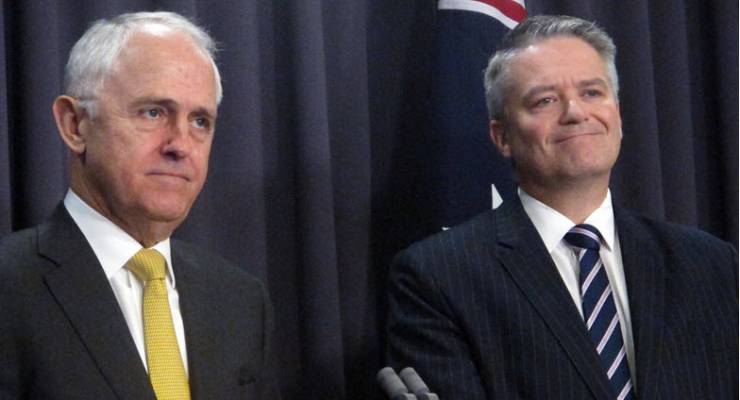
Having settled on its plan for a $122 million public opinion survey on same-sex marriage, the Turnbull government has fulfilled its dismally short-term objective of dissuading five MPs from rebelling on the floor of Parliament.
The next hurdle is a potential legal challenge that may give it some tough questions to answer, namely: how it is that a nine-figure sum can be channelled to an exercise with no real precedent without the approval of Parliament, and whether the Australian Bureau of Statistics has the legal authority to do something that is properly in the domain of the Australian Electoral Commission.
Should that be cleared, the government will then be left to implement a policy that has been imposed on a weak and unwilling Prime Minister by a conservative faction determined to swim against the seemingly overwhelming tide of public opinion.
Whereas a free vote in Parliament would deliver a certain and decisive victory to the cause of same-sex marriage, a non-binding national vote, in whatever form it might take, at least gives the conservatives another throw of the dice.
And while the postal option wasn’t their initial plan, they now have the perverse good fortune of those dice being loading in their favour.
Being the contentious brainchild of a Coalition government, the exercise will presumably have greater credibility in the eyes of conservative voters, who will accordingly feel more inclined to participate.
Furthermore, there are fairly obvious reasons to expect that a postal survey will better engage older voters than the new generation of digital natives, some of whom may never have sent a letter in their lives.
The only precedent for a voluntary national election conducted by post was in 1997, when delegates were chosen for the constitutional convention that devised the republic model that was voted down in 1999 — among whom were a younger Malcolm Turnbull, in his guise as president of the Australian Republic Movement.
According to figures published by ABC election analyst Antony Green, the participation rate began at 33.9% for the 18-25 age cohort, and rose to 59.2% for those over 65.
Two decades on, non-compulsory postal elections have become the norm at local government level in Western Australia, South Australia and Tasmania, and here the distinctions are even more pronounced: in the case of WA’s most recent council election, the participation rate was 16.4% among the under 25s, and 43.3% among those 65 and over.
The significance of this in same-sex marriage terms is illustrated by the recent polling of Essential Research, which has recorded a 76% to 13% split in favour of same-sex marriage among the youngest cohort, compared with 46% to 42% among the oldest.
At a normal election, those numbers would translate into an overall result of around 69-31 in favour of Yes.
While it may be thought that a vote on same-sex marriage would better engage the young than a council election, a voting population like the one just described in Western Australia would narrow the margin to 65-35.
If that still leaves the No camp a long way short of where it needs to be, there’s always the possibility that they might cheat.
On the rare occasions in western democracies where claims of voter fraud contain anything more than hot air, postal voting is usually involved.
Courts in Britain overturned council elections in Birmingham in 2005, citing “massive, systematic and organised fraud” involving postal ballots, and in the London borough of Tower Hamlets in 2015, where the mayor was accused, among other things, of falsifying postal vote applications.
Of course, it’s quite fanciful to suggest that any such exercise could be conducted on a significant scale without detection at a national vote involving millions of participants.
But with scepticism about the integrity of the electoral system apparently on the rise, it’s an odd move for the government to pursue its plan to “give the Australian people a say” through a postal system that may not be up to the job — and to do so outside the framework of the Electoral Act and its attendant legal protections against bribery, deception and interference.








Crikey is committed to hosting lively discussions. Help us keep the conversation useful, interesting and welcoming. We aim to publish comments quickly in the interest of promoting robust conversation, but we’re a small team and we deploy filters to protect against legal risk. Occasionally your comment may be held up while we review, but we’re working as fast as we can to keep the conversation rolling.
The Crikey comment section is members-only content. Please subscribe to leave a comment.
The Crikey comment section is members-only content. Please login to leave a comment.